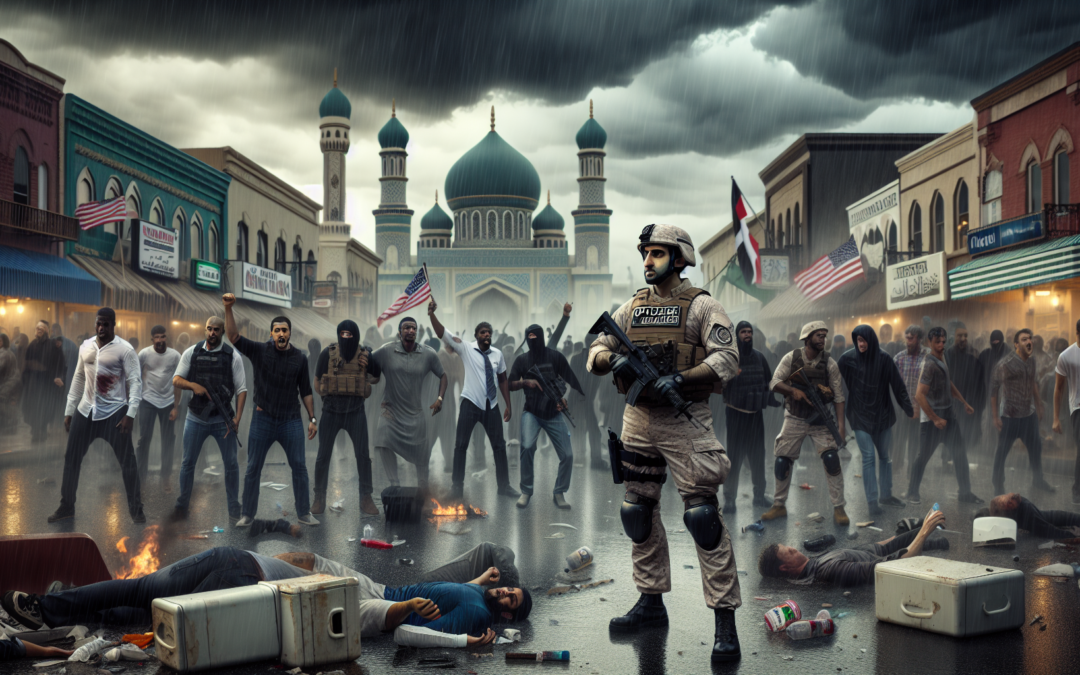Disrespect for Authority: When Law Enforcement is Drenched in Dangerous Anarchy
There was a time when the badge was universally recognized as a symbol of law, order, and steadfast commitment to public safety. Police officers were pillars of respect within their communities, seen as peacemakers, guardians, and public servants. Today, that perception is under siege. The alarming trend of aggressive behavior toward police officers represents a radical shift in societal norms, eroding the foundation of trust and respect essential for a functioning, civil society.
It’s easy to forget that behind every badge is a person—a father or mother, brother or sister, friend and neighbor. These are individuals who have chosen a dangerous and often thankless profession not for the glory or notoriety but because of a deep-seated desire to make the world a safer place. In today’s turbulent climate, they clock into their shifts with an ever-growing burden on their shoulders. This burden is not just from the inherent risks of the job, but from the mounting disrespect that seems to emanate from all corners of society.
Consider a situation where a police officer responds to a call. Lights flashing, sirens blaring—not just to create the urgency necessary for response, but to alert the public of their presence. As they approach the scene, instead of cautious relief from bystanders, they are often met with hostility. Cell phones are immediately drawn, not to document bravery but to capture any potential misstep for the next viral moment of outrage. The tone of these interactions has changed dramatically, with every encounter potentially morphing into a high-stakes confrontation.
This hostile environment doesn’t just happen in moments of public display but resonates in the quiet horrors that bridge those dramatic scenes. More officers are reporting experiences of being targeted—not for their actions, but for the mere fact that they wear the uniform. Acts of vandalism against police property, elaborate ambushes aimed at harming them physically, and an avalanche of vitriolic rhetoric on social networks collectively contribute to an environment where enforcement officers are considered fair game.
What’s fueling this animosity? Let’s unpack the layers of this complex issue. Part of it undoubtedly stems from a vigorous debate over policing practices and systematic reforms. Constructive criticism and the demand for accountability are valid, but what we’ve witnessed goes far beyond. It’s enmity that insists on sweeping generalizations, disenfranchising the entire institution of policing based on the perceived sins of a few. Such perspectives not only do disservice to those officers who perform their duties with honor and integrity but perpetuate a cycle of distrust and resentment across community lines.
An analogy that perhaps fits is the immune system. Just as an ailing body needs its immune responses to function properly in order to heal, a democracy needs law enforcement to uphold its laws and adapt positively to systemic reforms. Disrupting this balance won’t eradicate societal issues but will suppress the very mechanism designed to protect public welfare.
This collective rage consumes the notion of empathy—it browbeats those within law enforcement and alienates the very people needed to effect positive change. It sows seeds of fear among fresh recruits and seasoned officers alike, dissuading promising individuals from pursuing or continuing careers in a field already grappling with shortages. Fewer protectors on the street mean delayed responses and potentially compromised community well-being. Everyone, from the elderly lady across the street to your own kids hoping for a safer journey from school, pays the price for such irrational drama.
And let’s not gloss over the courage wounds—the psychological scarring no trauma surgeon can suture. These individuals, continuously scrutinized under a public magnifying glass, face relentless mental pressure. They’re human after all, susceptible to stress, anxiety, and in some distressing cases, PTSD. Imagine stepping back into the same line of fire, not from crime but an ungrateful citizenry, day after unyielding day. Such an environment chips away at one’s spirit, doggedly echoing “Heal with valor,” knowing sympathy feels scarce and animosity abundant.
Supporters often rally under the banner of accountability, separating the bad apples while forgetting the fundamental truth: wholesale defamation devaluates sincere work. Calls for transparency must not be mistaken for blanket condemnation, and those watering the seeds of disdain need to recognize a critical truth—their future relies upon the very order constantly decried.
Now more than ever, it’s crucial to fortify our relationships with law enforcement. Dive into thoughtful conversations about community collaboration and learn more about fostering a positive dialogue. Check out resources like The John Ligato Show on YouTube where complex topics are unpacked with depth and insight. Join the growing legion of individuals and forums engaged in measured, respectful discussions that truly aim to bridge the widening gap we’re witnessing today. Watch John’s episode on this pressing issue to gain a greater understanding from the law enforcement perspective. Additionally, stay connected via the John Ligato Show Facebook page for regular updates and dialogues that challenge existing perceptions with challenging, thoughtful discourse.
Rebuilding trust won’t be easy, but understanding is the first step. These officers are our neighbors, not our adversaries. In championing their cause, we’re not merely supporting a profession; we’re defending the pillars that uphold the sanctity of everyday life. It’s about time we pull our communities together, bridge these understanding gaps, and fashion a safer, respectful, and cohesive future.

Recent Comments